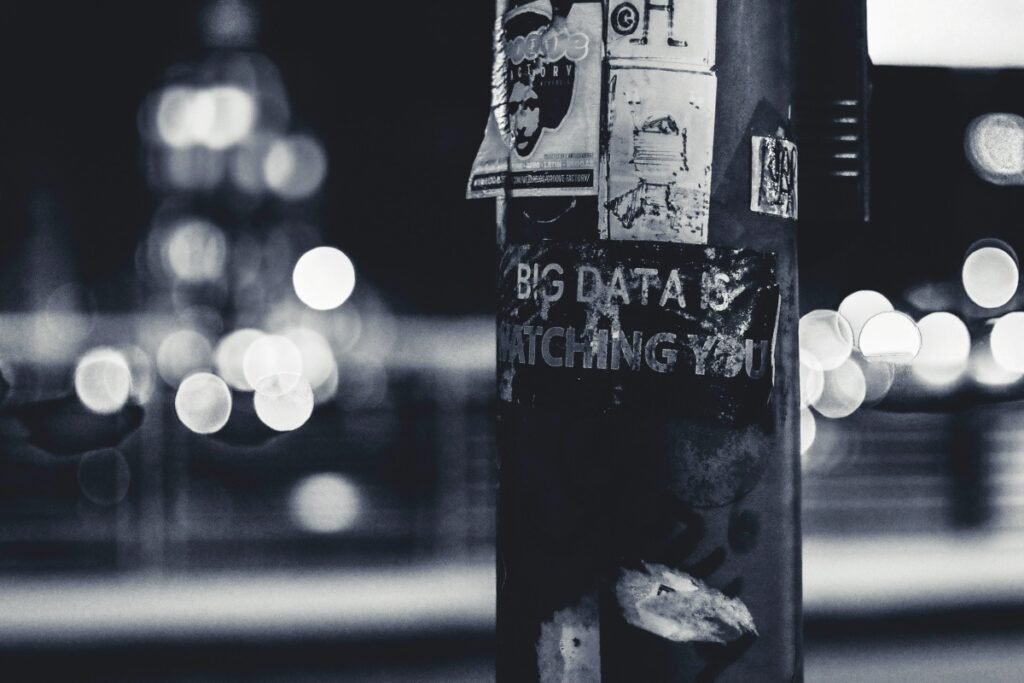The Erosion of Privacy: Surveillance and Data Exploitation in Modern America
In an era characterized by heightened surveillance and rampant data commodification, the rights of American citizens are increasingly under threat. Amidst the unsettling marriage between government practices and unregulated Big Tech, the age of surveillance capitalism raises significant concerns about personal privacy and data security.
A Climate of Surveillance Capitalism
In today’s digital age, information is not just valuable; it’s a multi-billion-dollar trading commodity. Organizations, governments, and data brokers thrive on the collection and commodification of personal identifiable information (PII), often putting individuals and institutions at risk of cybersecurity breaches and data theft.
What types of PII are being collected? Commonly harvested data includes:
- Social Security numbers
- Location information
- Health records
- Financial data
- Browsing history
- Political and religious affiliations
Data brokers obtain this information and sell it to a variety of sectors, such as advertising agencies, law enforcement, and even malicious entities like scammers and stalkers.
Data Brokers and Their Operations
One stark example of this troubling practice is the Airlines Reporting Corporation (ARC), which has been criticized as a “shady data broker.” This organization, owned by leading U.S. airlines including Delta and United, collects travelers’ domestic flight records and sells them to Customs and Border Protection, while hiding how this data is sourced.
Moreover, data brokers extensively mine information from social media, financial transactions, and even loyalty programs to compile targeted lists of individuals. Privacy experts caution that even de-identified data can be traced back to individuals, raising serious ethical concerns.
Government Misuse of Data Privacy
Surprisingly, the United States lacks a federal data protection agency, leaving citizens vulnerable as administrations continue to erode privacy rights. The Fair Credit Reporting Act (FCRA) was designed to safeguard consumer data from governmental overreach. However, in 2023, privacy advocate Lauren Harriman highlighted how data brokers exploit these protections by purchasing data directly from utilities and other sources to aggregate and sell.
A Partnership Between Government and Big Tech
Recent developments have shown a disturbing synergy between federal agencies and corporations like Palantir. Following the June 2025 Supreme Court ruling, the Department of Government Efficiency (DOGE) gained sweeping access to Americans’ PII. Concerns were raised regarding the integrity of the Social Security Administration and other agencies, with civil leaders fearing a catastrophic breach of privacy and security.
Prominent figures like Senators Elizabeth Warren and Ron Wyden have voiced concerns over this unprecedented access, which could usher in a new era of domestic surveillance.
Americans’ Awareness Gap
The general public remains largely unaware of the extent to which their personal data is vulnerable. A 2023 Pew Research Center study revealed that up to 60% of Americans do not read privacy policies, often clicking "agree" without understanding the implications.
Distrust Across the Board
Survey findings indicate that distrust extends across political lines, with most Americans wary of how both corporations and the government handle their PII. However, those with higher education levels tend to take more precautions online, while less informed individuals exhibit a misplaced faith in government and corporations to protect their data.
The Rising Threat of Data Exploitation
The exploitation of PII has reached alarming levels. With the dismantling of consumer protections, the CFPB (Consumer Financial Protection Bureau) closed its eyes to data broker practices, further exacerbating this vulnerable situation.
How to Understand Your Risks
- Stay Informed: Awareness of the personal information you share online is crucial. Evaluate whether the services you use warrant the information you provide.
- Practice Online Hygiene: Regularly delete and block spam, phishing emails, and texts to minimize exposure.
Protecting Your Privacy: Know Your Rights
Privacy is a fundamental human right, as stated in the Universal Declaration of Human Rights. However, legal protections for this right are inconsistent in the United States. Legal scholars argue that viewing privacy as a civil right could compel stronger protections against data exploitation.
Call for Action
To safeguard against unauthorized surveillance and misuse, there must be a dual approach:
- Top-Down Legal Reforms: Implementing stricter laws on data collection is essential.
- Bottom-Up Consumer Control: Empowering individuals to manage their data through education and digital literacy initiatives.
The Path Forward
Until citizens are better informed and media outlets prioritize the coverage of privacy rights, unconstitutional practices will likely continue unchecked. The onus falls on individuals to take proactive measures to protect their personal information.
Stay Vigilant
As we navigate this digital landscape, it’s crucial to remain aware of how data surveillance is evolving. Protecting your privacy doesn’t have to be a solo effort; utilize resources from organizations like the Electronic Frontier Foundation for guidance on secure online practices.
For more insights into your digital rights and responsibilities, explore resources from ACLU and Privacy Rights Clearinghouse.
In this age of advanced surveillance and data exploitation, arm yourself with knowledge and tools to reclaim your digital privacy rights.


